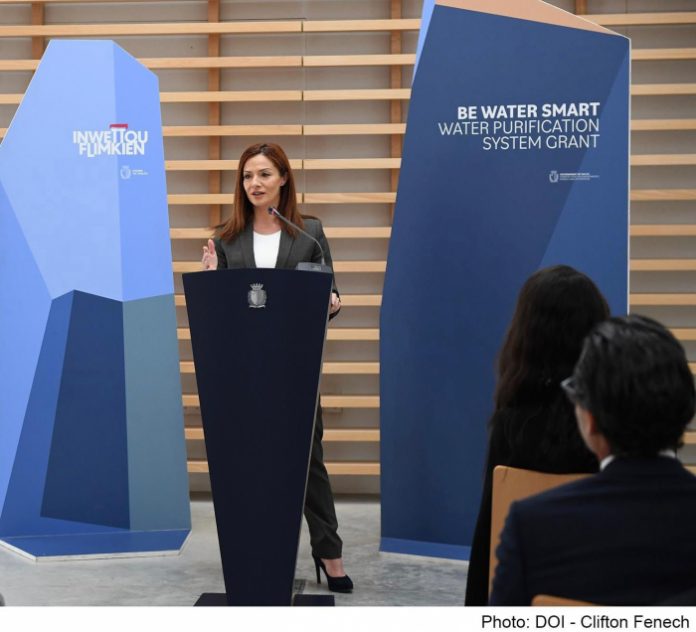Three grants have been launched by the Ministry for the Environment, Energy and Enterprise to encourage households to reduce single-use plastics through the means of water purification systems.
Against an investment of €1 million, the Ministry is launching the ‘Be Water Smart Scheme’ grants, to support households investing in water filtration and domestic reverse osmosis systems. The scheme offers three types of grants, to cater for the different systems:
- Be Water Smart: Water Guard, applicable for water filtration systems. The grant rate is of 40% of the purchase price and installation cost with a capping of €100.
- Be Water Smart: RO Wave, applicable for reverse osmosis. The grant rate is of 15.25% of the purchase price and installation cost with a capping of €100
- Be Water Smart: RO Recycle, applicable for reverse osmosis with wastewater returned to the residential water storage. The grant rate is of 40% of the purchase price and installation cost with a capping of €300.
The above amounts represent an increase from the previous grant, which stood at 15.25% on the purchase price and installation, with a capping of €70.
“It is estimated that each household buys some 500 plastic bottles every year. Through campaigns such as Saving Our Blue, we collect approximately 200kg of bottles and bottle caps just from beach and dive clean-ups. We know that more households want to live sustainably and understand the value of water conservation. Hence, we wanted to present schemes that truly encourage the transition towards sustainable practices in our daily lives,” stated Minister Miriam Dalli during the launch.
Minister Dalli explained that these schemes are a fit for all systems available on the market, including both water filtration and reverse osmosis systems. It is estimated that the uptake of the scheme will result in the approximate reduction of 3 million plastic bottles per year. This will contribute to Malta’s efforts as part of its single-use plastic strategy as well as the waste management plan and waste reduction.
Since carbon footprint is also generated with the production and transportation required to provide plastic bottles and other single-use plastic items, the reduction of consumption of single-use plastic waste will lead to a reduction in the generation of carbon footprint.
For further information regarding the newly introduced schemes please visit servizz.gov.mt or call 153.










